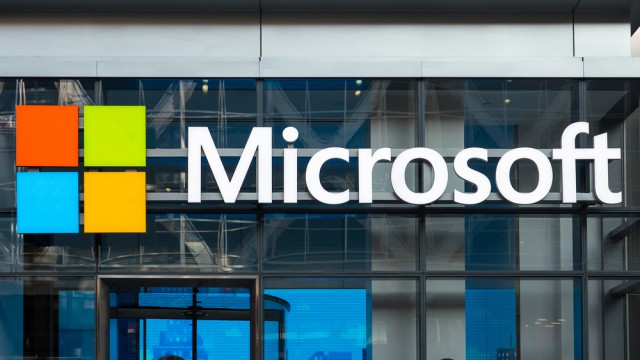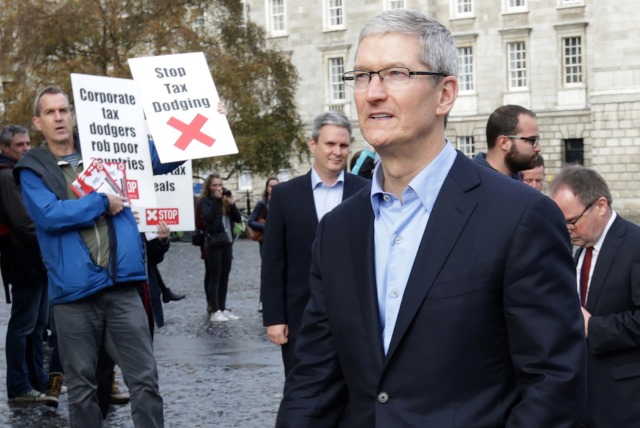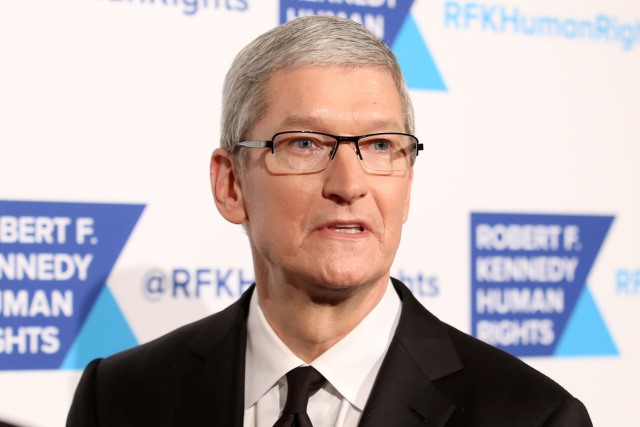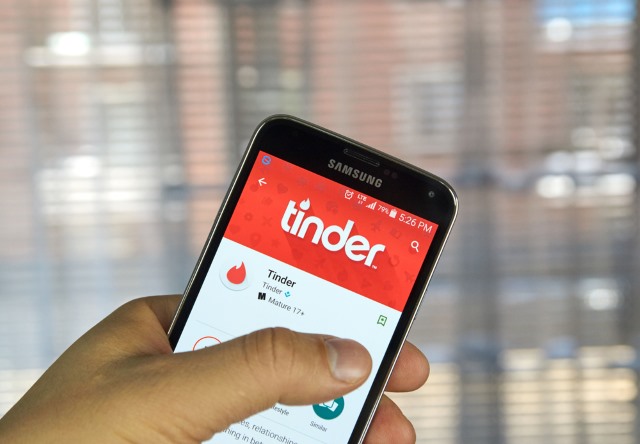
Open source IT pros are in high-demand in Europe
Open source employees in Europe have it good, especially when we compare that market to the rest of the world. This is according to a new report by Dice and The Linux Foundation. The report says that out of 1,000 European respondents 60 percent believe it would be fairly easy to find a new job this year. Globally, the figure stands at about 50 percent.
"Demand for open source talent is growing and companies struggle to find experienced professionals to fill open roles", says Bob Melk, president of Dice. "Rising salaries for open source professionals indicate companies recognize the need to attract, recruit and retain qualified open source professionals on a global scale. Regardless of where they reside around the world, these professionals are motivated by the opportunity to work on interesting projects".

Microsoft will build a data center in France
Microsoft has announced that its investments in cloud computing in Europe exceeded $3 billion, as it plans to open a new data center in the country next year. Besides making this announcement, Microsoft has also released a new book, entitled A Cloud for Global Good, containing policy recommendations for things like data protection.
The company’s CEO, Satya Nadella, says the investment comes as a result of a "growing demand" from both European customers and partners. "Building a global, trusted, intelligent cloud platform is core to our mission to empower every person and organization on the planet to achieve more. There’s never been a better time for organizations across Europe to seize new growth and opportunity with the Microsoft Cloud".

Google faces fines for anticompetitive Android practices in Europe
European regulators could hit Google with large fines if the company does not stop offering financial incentives to smartphone manufacturers to pre-install its own apps on handsets. Documents obtained by Reuters show that a potential fine could be linked to the revenue Google makes from AdWords.
With advertising being Google's primary source of income, this has the potential to be a fine of unparalleled magnitude. The European Commission knows that it needs to hit Google where it hurts if anticompetitive practices are to be effectively discouraged. The Commission says it "intends to set the fine at a level which will be sufficient to ensure deterrence".

Many European businesses can't handle cyber attacks
A quarter of European companies are completely unprepared for the event of a cyberattack and would be extremely exposed if it happened, a new report by global law firm DLA Piper claims.
The paper also says that almost half of all companies (44 percent) view cyberattacks as a significant risk to their business, which means that a significant portion is aware of the problem yet does nothing. Among companies in Western Europe the number rises to almost a third (31 percent). The Benelux region is by far the worst, with 75 percent of companies being exposed.

Germany bans Facebook from collecting WhatsApp users' data
Germany has decided to ban WhatsApp and Facebook from sharing user data with one another as consumers did not agree to the data sharing deal between the two companies.
Last month, it was announced that WhatsApp would begin sharing the data it collected from its users to Facebook. The social network would then use that data to help it better serve ads and generate more information from the people using the popular messaging app.

European workers vulnerable to social engineering attacks
Hackers are using social media to gather information about their next victim. They use that information to form sophisticated strategies and deliver advanced threats into networks.
These are the results of a new Blue Coat Systems report, based on a poll of 3,130 workers in various industries in Great Britain, France and Germany. Key takeaway from the report is that user behavior has not improved much since last year. This year, 42 percent of respondents say they only accept friend requests from people they know.

Ads drive most Internet traffic in Europe
With all the buzz and fuss over ad blockers and how they hurt the internet we know today, it's interesting to see just how much traffic these ads actually drive. As it turns out, more than you'd expect. According to a new report by Adobe Digital Insights, more than two thirds (68 percent) of all European traffic is driven by ads. General traffic is also growing. In Europe, more than half (54 percent) of sites grew their traffic in the last three years.
Also, mobile advertising is catching up. Personal advertising, an ads strategy which seems to be working quite nicely, is not as popular in Europe as it is in the States, the same report says. Personalized ads, such as direct emails or social advertising, accounted for 36 percent of new traffic for growing U.S. websites. In Europe, that percentage is at eight.

How much will the iPhone 7 and iPhone 7 Plus cost in Europe?
The new iPhone 7 and iPhone 7 Plus will be hugely expensive in Europe when they go on sale later this month. Apple has decided to increase the prices of its new flagships compared to the previous generation, with the bump likely triggered by the US dollar's gains against the Euro and British Pound.
To put things into perspective, it is interesting that the iPhone 7 Plus will also see a $20 price increase over the iPhone 6s Plus in the US, while the iPhone 7 will continue to be sold at the same price as its predecessor. The bigger device now starts at $769, as opposed to $749 for the iPhone 6s Plus, while the iPhone 7 kicks off at $649.

Ireland to appeal against Apple's $14.5 billion EU tax bill
When the European Commission said it believed Apple should pay €13 billion (around $14.5 billion) after enjoying "illegal tax benefits", it wasn't just Tim Cook who was unhappy. The Commission said that the Irish Government had "artificially lowered" Apple's tax bill, and ministers are not happy with the accusation.
After meeting to discuss the matter, ministers are now ready to appeal against the ruling. After Apple said it planned to appeal against the decision, Finance minister Michael Noonan said Ireland planned to do the same.

Tim Cook hits back at 'maddening' European ruling on Apple tax
Apple CEO Tim Cook, talking to Ireland's RTÉ News, says that allegations put forward by the European Commission that his company owes $14.5 billion in back tax are 'maddening'. He is also very confident that the Commission's ruling will be overturned on appeal.
Echoing an open letter published earlier in the week, Cook said that the claims that Apple was given preferential treatment and special tax arrangements in Ireland have "no basis in fact or in law". The Irish cabinet has already met to discuss how to tackle the appeal that Apple is expected to launch, but has yet to reach a decision. The appeal will see Apple restating Tim Cook's claim that the tax figure put forward by Europe is "false".

Ahead of iPhone 7 launch, Apple faces $14.5 billion bill for 'illegal tax benefits' in Ireland
Apple is facing a bill of €13 billion (around $14.5 billion) after the European Commission ruled that Ireland granted the company illegal tax benefits. Ireland permitted Apple to pay "substantially less tax than other businesses", and the Commission has decided that not only is this illegal, but the money must be recovered.
A three-year investigation concluded that Apple was paying corporation tax of just 1 percent in Ireland. The tax arrangement meant that Apple's tax bill was "artificially lowered" -- down to as low as 0.005 percent in 2014. Ireland is used by many technology companies for its favorable tax rates, but the European Commission's ruling could have implications not just for Apple, but for its rivals and contemporaries.

Mozilla wants EU copyright law reform
Mozilla has called out the European Union, asking it to reform its copyright laws. The current one, according to the organization, is holding innovation and economic development down. Writing a blog post on the topic, Mozilla CIO Katharina Borchert says EU’s copyright laws are stopping great ideas in their tracks.
"The internet brings new ideas to life every day, and helps make existing ideas better. As a result, we need laws that protect and enshrine the internet as an open and collaborative platform", Borchert says.
Europe wants to control the likes of WhatsApp and Skype like telcos
The EU is looking to exert greater control over online messaging tools such as WhatsApp and Skype. Documents seen by the Financial Times suggest that Brussels wants to treat such services more like traditional telecoms companies.
The proposals come amid mounting privacy concerns about data handling, particularly the "security and confidentiality provisions" from companies like Microsoft and Facebook.

Business apps are not ready for EU's GDPR rules
Time is relentless. The GDPR is moving ever closer, while at the same time apps aren’t. And that’s a huge problem for businesses, because if apps are not GDPR-compliant, they’re not GDPR complaint. That can mean huge fines, possibly even the end of businesses.
The fact that apps are far away from being GDPR compliant came as a result of a new and extensive study by Blue Coat Labs. The company analyzed more than 15,000 enterprise cloud applications in use and 108 million enterprise documents stored and shared within them.

EU lawmaker decries Tinder's terrible privacy policy
The dating app Tinder is facing criticism from Europe where lawmakers believe it breaches EU data protection rules. There are calls for the app to be investigated by the European Commission over how it makes use of personal data.
Concerns spring from the fact that Tinder's terms are written in such a way that owner Match Group Inc can continue to use user data even when accounts are closed. It is alleged that these "abusive clauses" are unlawful.
